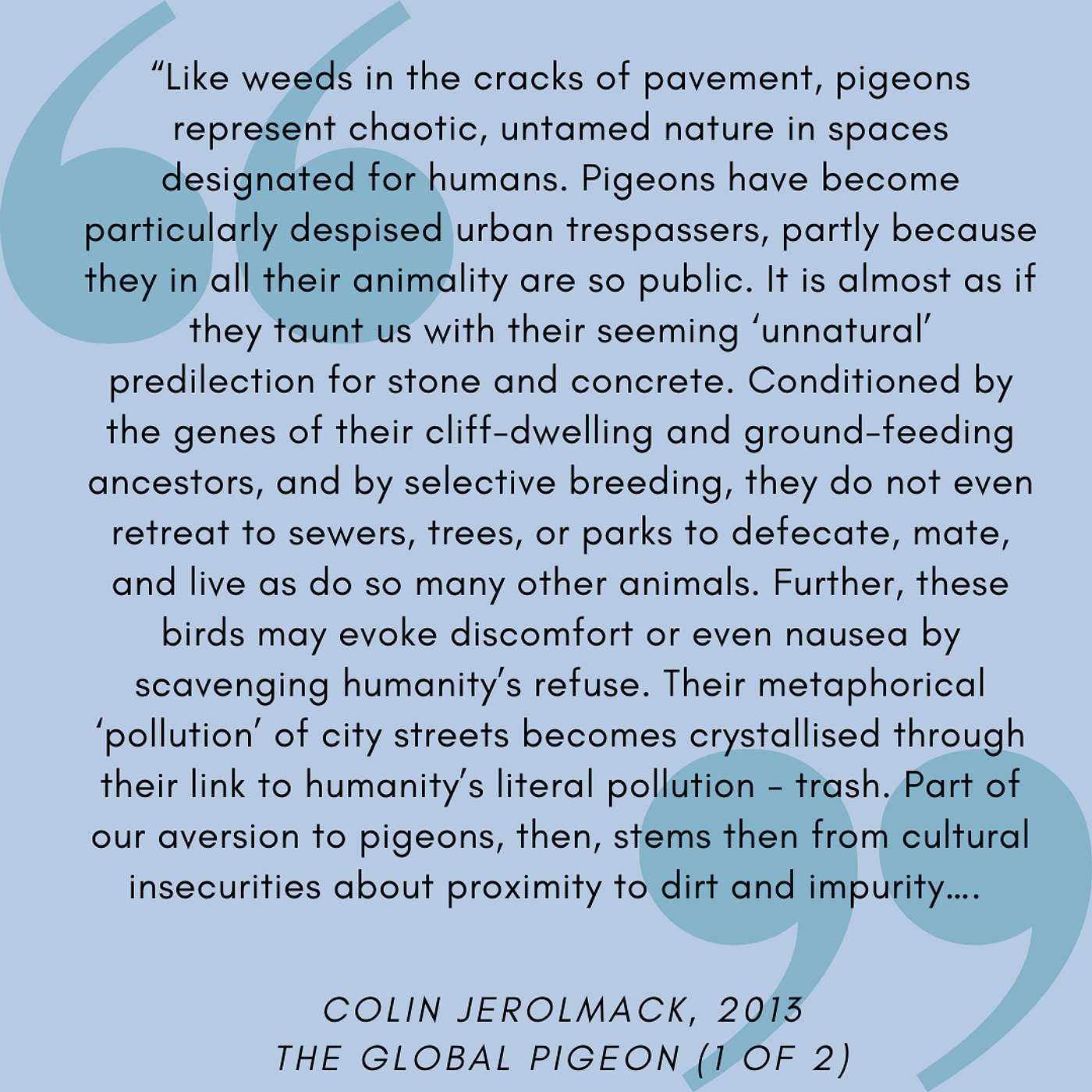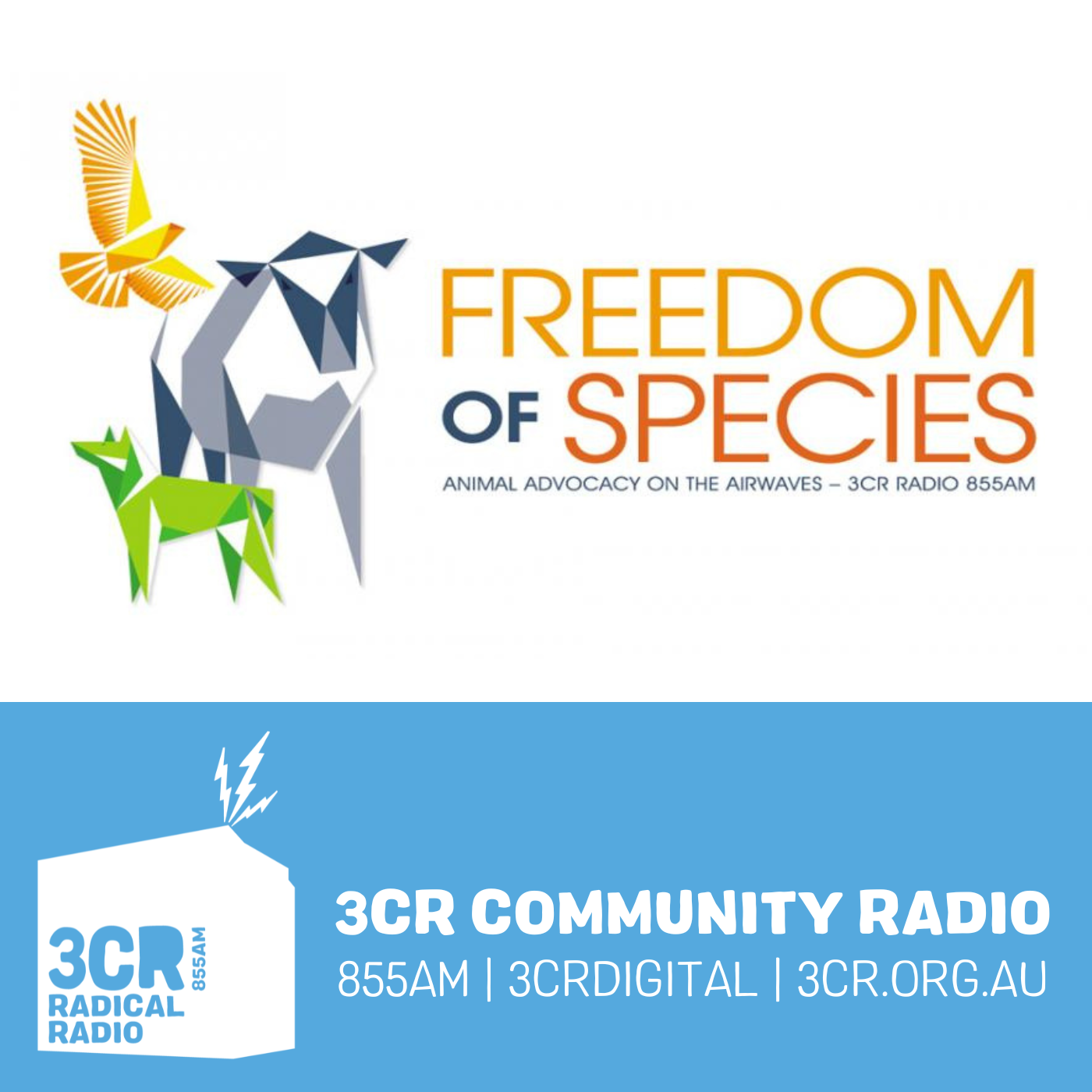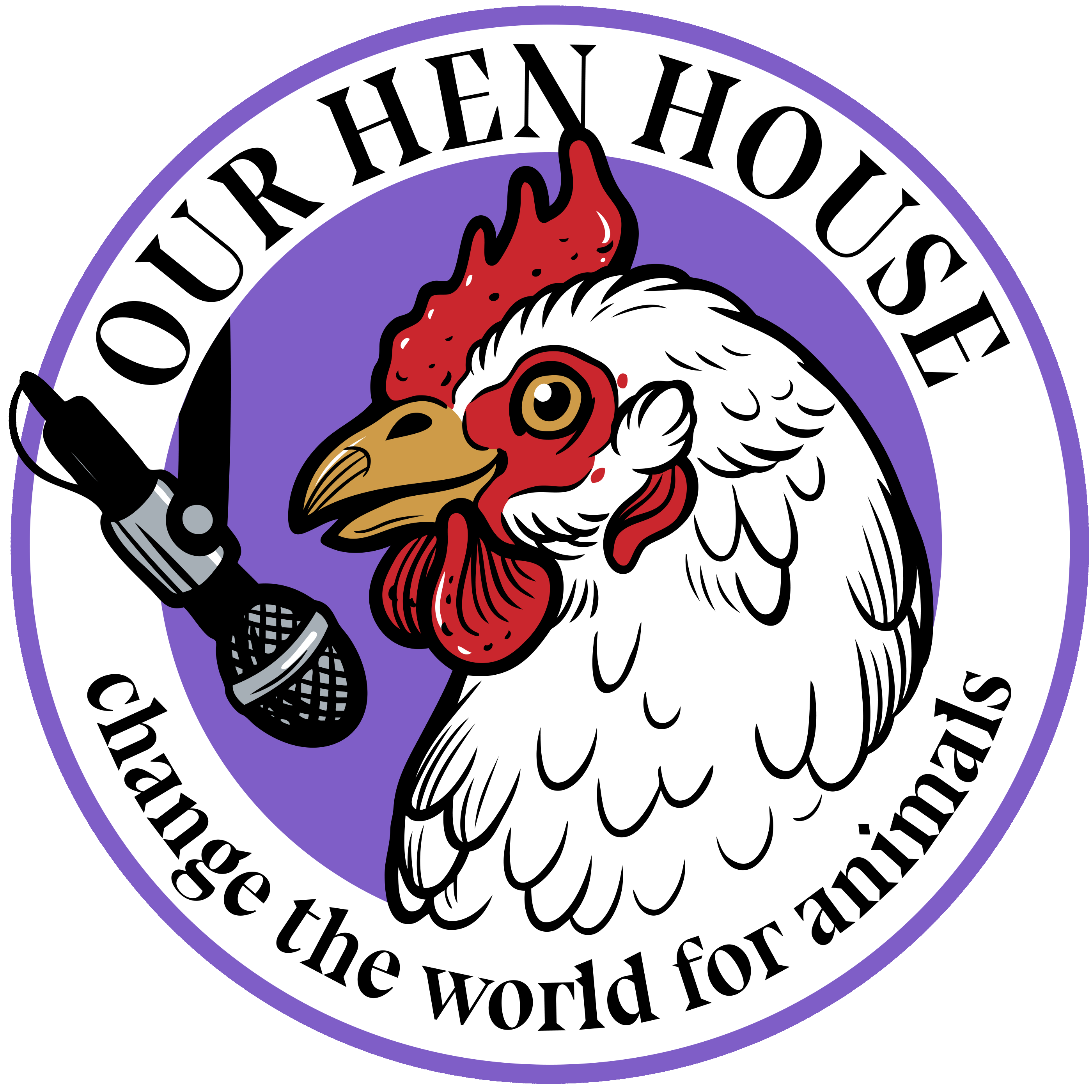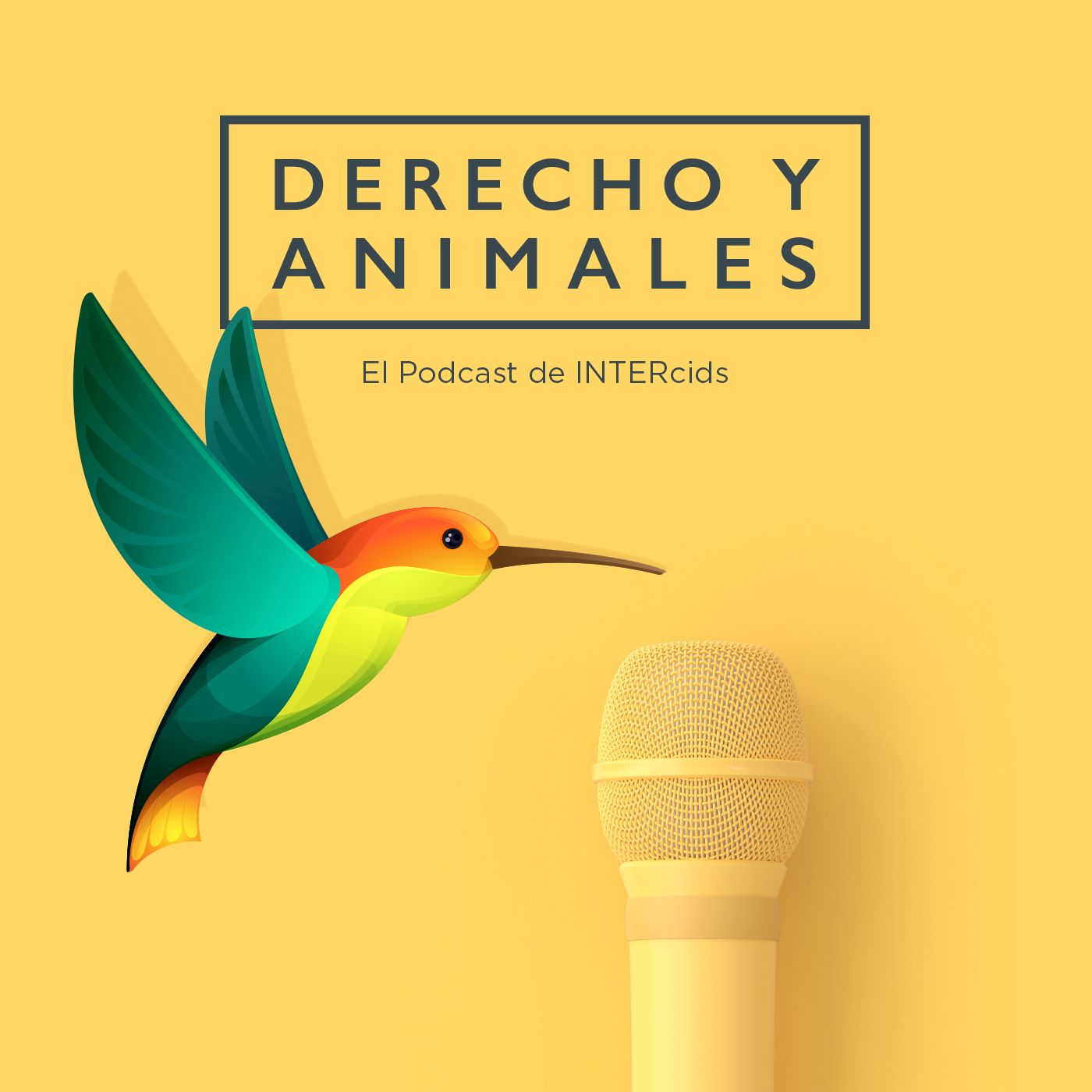
The Animal Turn
Animals are increasingly at the forefront of research questions – Not as shadows to human stories, or as beings we want to understand biologically, or for purely our benefit – but as beings who have histories, stories, and geographies of their own. Each season is set around themes with each episode unpacking a particular animal turn concept and its significance therein. Join Claudia Hirtenfelder as she delves into some of the most important ideas emerging out of this recent turn in scholarship, thinking, and being.
The Animal Turn
S3E2: Pervasive Captivity with Nicolas Delon
Use Left/Right to seek, Home/End to jump to start or end. Hold shift to jump forward or backward.
In this episode Claudia talks to Nicholas Delon about ‘pervasive captivity’. Moving beyond a conception of captivity as only including those ‘behind bars’, they explore the many ways in which ‘the urban’ might operate to make animals captive by limiting their mobility and autonomy.
Date recorded: 15 March 2021
Nicolas Delon is Assistant Professor or philosophy and environmental studies at New College of Florida. He specializes in animal ethics, with particular interests in moral status and animal agency. He has published on these topics as well as the ethics of killing animals, urban animals, wild animal suffering, and Nietzsche, among other things. He’s currently working on a book project about animals and the moral community of persons. Check out his website (https://nicolasdelon.com/) or connect with him on Twitter (@NicoDelon)
Claudia (Towne) Hirtenfelder is the founder and host of The Animal Turn. She is a PhD Candidate in Geography and Planning at Queen’s University and is currently undertaking her own research project looking at the geographical and historical relationships between animals (specifically cows) and cities. Contact Claudia via email (info@theanimalturnpodcast.com) or follow her on Twitter (@ClaudiaFTowne).
Featured: The Ethics of Captivity and Entangled Empathy by Lori Gruen; The Global Pigeon and
A.P.P.L.EAnimals in Politics, Law, and Ethics researches how we live in interspecies societies and polities.
iROAR Network
iROAR brings together podcasts that aim is to make the world a better place for animals.
Disclaimer: This post contains affiliate links. If you make a purchase, I may receive a commission at no extra cost to you.
The Animal Turn is hosted and produced by Claudia Hirtenfelder and is part of the iROAR Network. Learn more on our website.
- Leave a Review on Podchaser
- Check out The Animal Turn Merch.
- Support us on Patreon, Buy Me a Coffee, and Buzzsprout.

00:00 - Introduction
- “It might be that initially it was a good bargain for them, that they were attracted to the urban environment because it was safer, warmer, offered free sources of food …but at a point when that is combined with habitat destruction and increased reliance on human provision then they become captive to the extent that their options are severely restricted” – Nicolas
00:34 – Claudia gives an intro to the episode
- Developments at The Animal Turn – check out the website. It includes links to resources that might be useful to you.
- Launched a blog – still a work in progress
- Reached 5,000 downloads! Woot! Thank you for your support
- Please leave a review Podchaser – Can leave a review for a show or even just a specific episode. Also have a look at the listening lists.
- “What does it mean to be a captive?” Nicolas has a much broader definition of the concept and its usefulness is clear in the episode.
4:20 – About Nicolas Delon
- Teaches Philosophy in Florida and a philosopher by training
- Animal Ethics is his area of specialisation but started to engage in more inter-disciplinary work
- Shifts and influences between academic and personal interests in animals
- “This topic gets really personal, really quickly” – Nicolas
09:58 – Why should we be talking about urban animals?
- Teaching at NYU and Lori Gruen had released a volume on the ethics of animal captivity – did a class on this for three years
- Interested in the animals in the liminal spaces – those animals that are neither domesticated or wild
- People consider the city as a place where animals are out of place or not welcome – “that struck me as false, that was not my experience” – Nicolas.
- There is a lot of wildlife in cities like New York and noticed them more and more. Learned how to take care of pigeons. Looked at and cared for animals that are neglected in real life but also in literature about animals in the city.
- Urban animals are significant because they are urban animals and they deserve to be considered
- Colin Jerolmack – The Global Pigeon taught how to think about the boundaries between the social and the natural
- These animals are not only neglected but also interesting to think about in terms of how different categories are created
17:50 – What is this concept captivity? What does it mean to be captive
- Basically it is a “deprivations of freedoms” – restricts ability to do something but we need to understand how this takes place
- Following Lori Gruen you could see a captive and a captor. Involves confinement and control and also leads to dependence. These tend to be mutually reinforcing.
- “By making them dependent and/or vulnerable, we also, to a degree make them confined to certain places where they can survive” – Nicolas.
- If you look at these three (confinement, control, and dependency) you start to realise that there are more cases of urban captivity than we would necessarily think.
- An objection – or intersecting interjection – would be if children could be thought of as captives
22:09 – To what extent are any of us really free to do what we want?
- “There are all sorts of institutions that restrict our freedoms?” – but if we think everyone is captive then it doesn’t do any work. So we need to think about if the captivity is abnormal and restricts options
- Street dog versus a dog in a home – different options that are available to these different groups.
- “How do you navigate that tension of animals being essentialized to natural, biological things versus being dynamic beings that react to their environments?” – Claudia
- Wary of introducing too much essence in how we conceive of species-specific ideas. Working with a thin idea of natural. A baseline before a significant change.
- Skills of flexibility might be developed differently in urban environments – there are different problems to respond to in rural versus urban areas. Take for examples racoons.
30:00 – Dogs in cities and their captivity
- Street dogs and companion dogs might both be captive but captive in different ways
- See Alexandra Horowitz – constituted captivity
- “What kind of scales of captivity are we talking about?” – Claudia
- Dogs and their choices in cities, who cares for dogs
36:00 – Speaking about captivity in different ways
- “The idea of pervasive captivity is meant to capture the fact that there are many more captives than what we think intuitively” – Nicolas
- “If you think of the urban environment as creating a lot of spatial constraints on the movements of many urban populations but also enforcing many forms of control…and you add to that the fact that the city is such a natural environment for many of them, these animals become dependent – Nicolas
- Nobody in particular intended to create the conditions for captivity
- Animals are reliant on the urban space, relying on another space is not an option
- Two aspects are mutually reinforcing – their habitats are in cities and habitats outside of cities are increasingly under threat.
- Doesn’t mean all animals in the urban environment are captive – there could be many that flourish
41:00 – An example: Birds in cities
- Bird feeders and salmonella, also birds starving in cities
- To feed or not to feed? Should we feed wildlife?
- Clare Palmer and Mallard Ducks – who become increasingly reliant.
- Be mindful of consequences of making animals dependent, increased vulnerability and responsibility
- Jerolmack talks about pigeons and the feeding of pigeons becoming institutionalised and then banned.
- The speed with which we change our mind and politics – impacts ethics and animals’ experience of the city.
- Captivity is a relational concept
- Lori Gruen on entangled empathy – those relationships already exist. “Question is not whether or not we should have those relationships but where we do have them, how do we improve them?” Nicolas
- Children as captives means you recognise that you have increased responsibilities.
- Using the relationality of captivity to centre this idea of pervasive captivity
- The idea of a spectrum – not as totalising as saying “you are a pest”
- A wide range of cases and degrees of captivity that will intercut with other spectra
- Captivity doesn’t necessarily mean negative
49:00 – Quote from Jerolmack – The Global Pigeon
- How pigeons are considered out of place
- Food, waste, and living – the discomfort pigeons can create
- Animals might eat things we find unpleasant.
- Disavowed poo and sex
- How are humans captive to their own social ideas?
- Waste as a provision
- Image of a dumpster with a bald eagle
- “They are so close that we don’t actually notice them” – Nicolas
- “They are as admirable as any of the charismatic species” – Nicolas
- “As soon as they become problems they become visible – which is kind of sad” – Claudia
56:44 – What are you working on now?
- Book project in its infancy about the moral community conceived of as relationally and how we can include animals as urban residents, companions, persons….
- People can find www.nicolasdelon.com
- On Twitter @nicodelon
1:00:11 – The Animal Highlight – Pigeons
- Pigeons are very cool
- See and hear in amazing ways!
- Produce crop milk
- Cities have food and our buildings look like cliff faces
- Domesticated 5,000 years ago
- Can live 3-15 years
- High conceptual capacity – pigeons have passed the mirror test; Can differentiate paintings by style; and they can differentiate between benign and malignant tumors. They do this wonderfully as individuals and even better as a group
- They tend to mate for life
- Stop and watch pigeons
01:03:00 – Thank yous
- Thank you to A.P.P.L.E, Jeremy John and Gordon Clarke
Compiled by Claudia Hirtenfelder
Podcasts we love
Check out these other fine podcasts recommended by us, not an algorithm.

The Animal Highlight
Claudia Hirtenfelder
Knowing Animals
Josh Milburn
Species Unite
Species Unite
The Deal with Animals with Marika S. Bell
Marika S. Bell
The Other Animals
Laurent Levy
Beyond Species
Beyond Species
The Anthrozoology Podcast
Anthrozoology Podcast
Freedom of Species
The Freedom of Species Team
Our Hen House: Vegan & Animal Rights Movement | Stories from the Frontlines of Animal Liberation
Jasmin Singer and Mariann Sullivan
Derecho y Animales
Derecho y Animales
Storytelling Animals
Dayton Martindale
Species
mackenmurphy.org
Animal Law Matters
K & R Animal Law
The Humanimal Connection
Humanimal Trust
The Animal That Changed You
Katya Lidsky
Think Like a Vegan
Emilia Leese
The Shifting Lens: Viewing the Animal Experience
Tiamat Warda Rebecca Madrid
The Salmon People
Canada's National Observer
Comme un poisson dans l'eau
Victor Duran-Le Peuch

